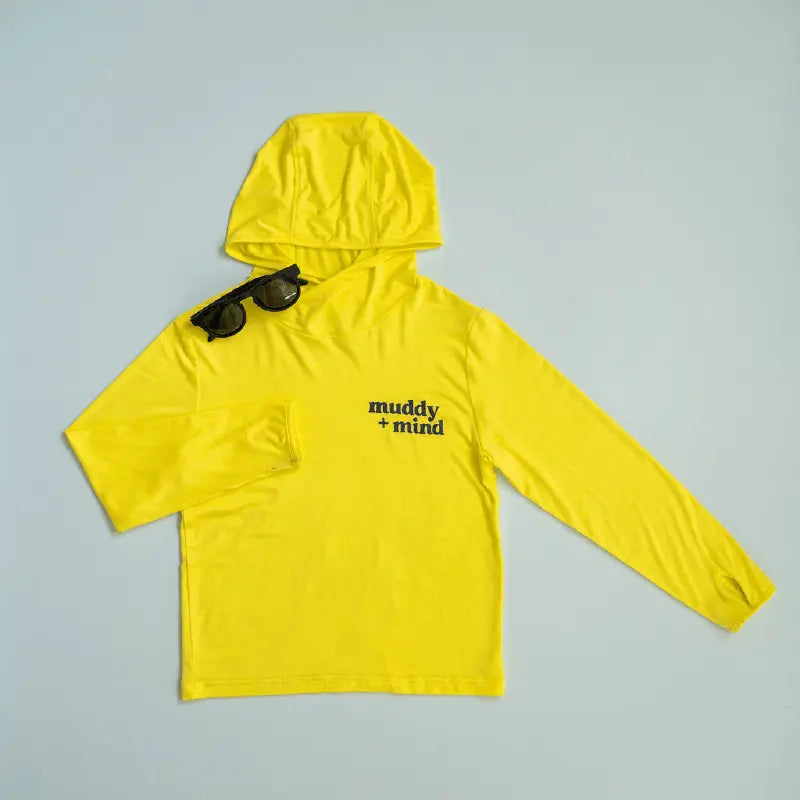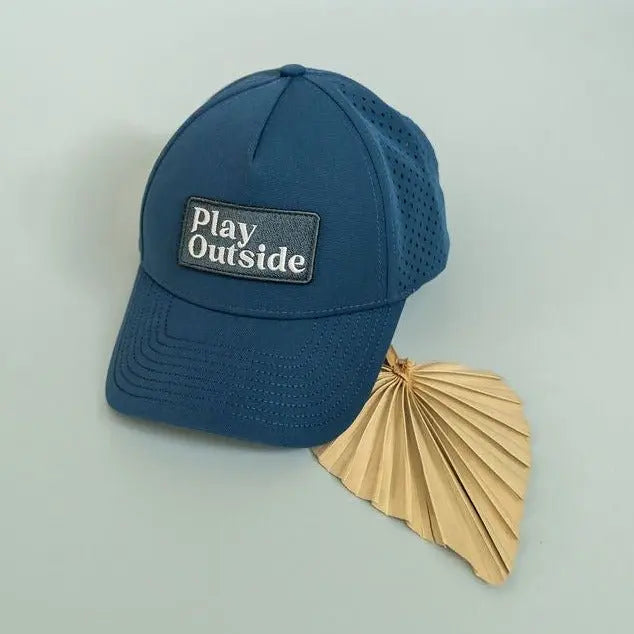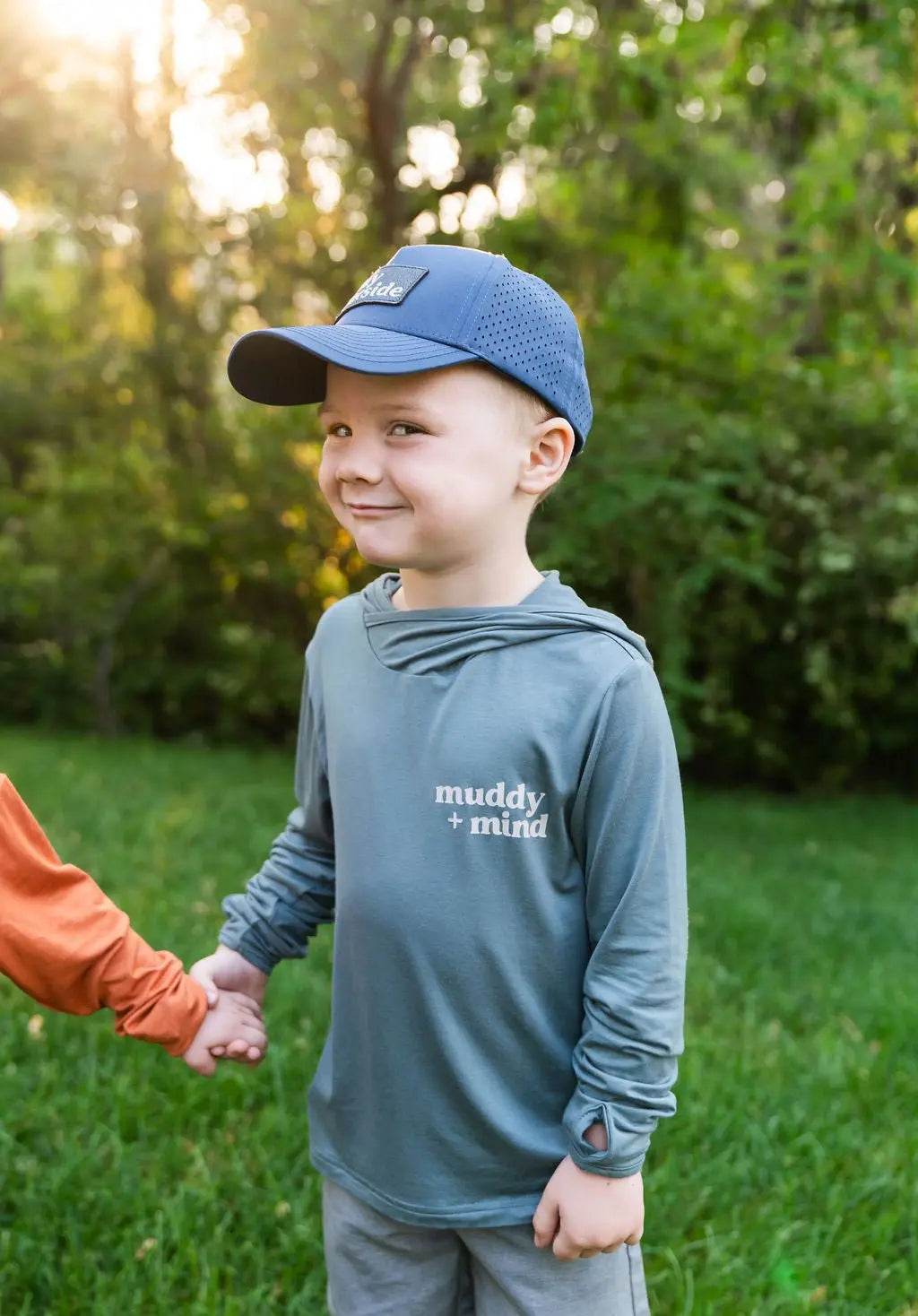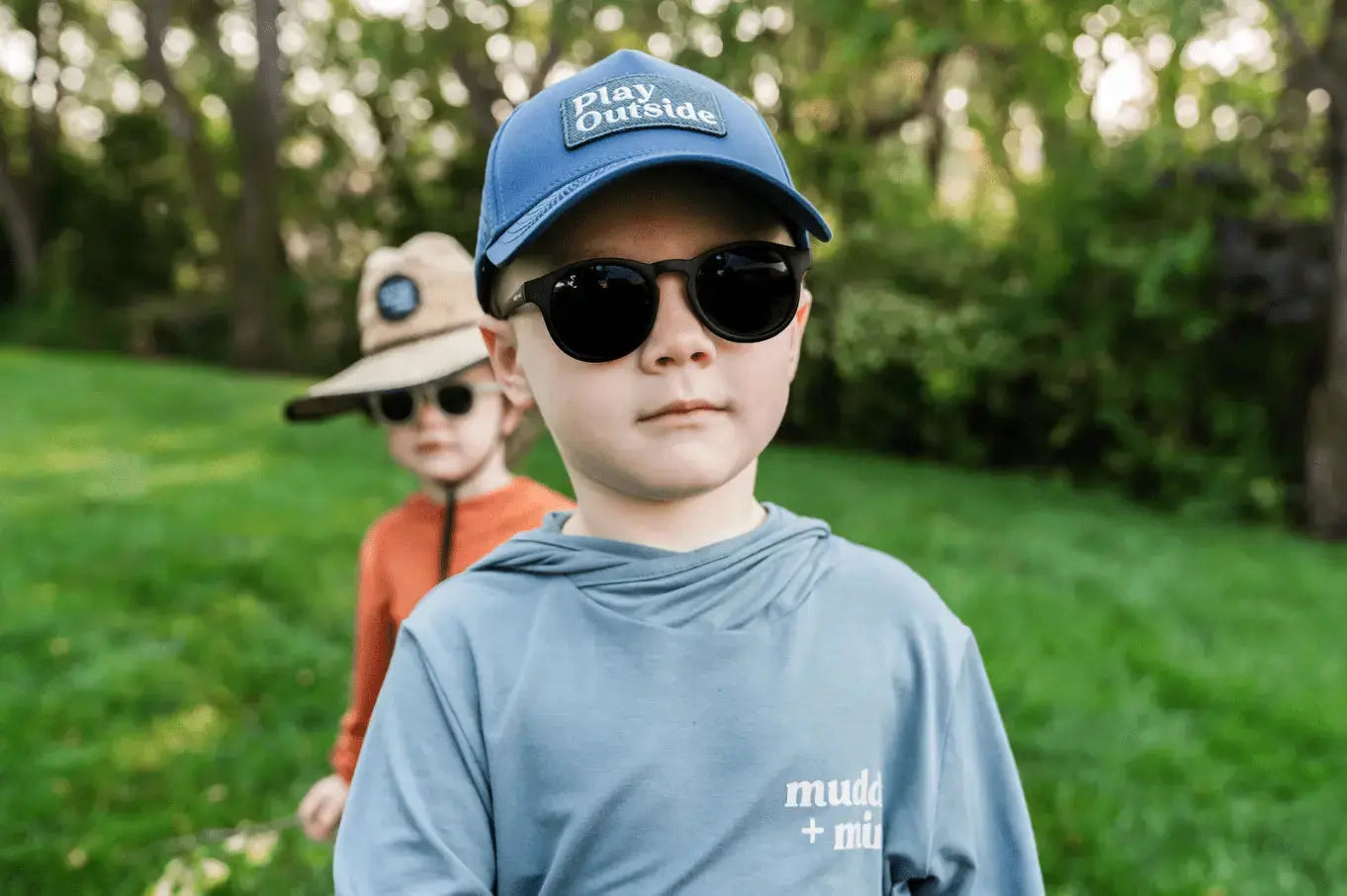Automatically applied at checkout

The Mental Health Benefits of Outdoor Play for Kids: Why It Matters More Than Ever
The Mental Health Benefits of Outdoor Play for Kids: Why It Matters More Than Ever
Last week, my 4 year-old came home from school, tossed his backpack down, and said, “I need to go outside.” No snack. No screen. Just straight to the backyard. He built a bug hotel out of sticks and bark for 45 quiet minutes.
By the time dinner rolled around, the grumpiness was gone.
It’s moments like that that remind me why we do what we do at Play Outside. Because kids are carrying more than we think. And the outdoors offers something screens, toys, and even us as parents often can’t: a natural reset.
The science agrees. Here’s what researchers say about how outdoor play helps support kids’ mental and emotional well-being.
1. Nature Reduces Stress and Anxiety
Multiple studies show that even brief exposure to nature can lower cortisol levels (the body’s stress hormone) and activate the parasympathetic nervous system, which helps the body relax.
A 2019 study published in Frontiers in Psychology found that spending just 20 minutes in nature significantly reduced stress hormone levels in both kids and adults (Hunter et al., 2019).
For kids who are easily overstimulated, anxious, or emotionally reactive, just being outside, under a tree, watching ants, can make a measurable difference.
2. Outdoor Play Builds Emotional Regulation
Unstructured nature play encourages kids to:
- Navigate challenges (climbing, slipping, solving problems)
- Cope with frustration (like when the stick breaks or the mud is too dry)
- Self-soothe through sensory regulation (wind, water, movement)
According to the Children & Nature Network, children who spend time in nature regularly show increased ability to regulate emotions and behaviors, especially in high-stress or unpredictable environments (Chawla, 2015).
These are the same self-regulation skills that help kids succeed in school, friendships, and family routines.
3. Movement Improves Mood and Sleep
Outdoor play usually means physical activity, which has been shown to release endorphins, improve sleep quality, and even reduce symptoms of ADHD and depression.
The American Academy of Pediatrics recommends at least 60 minutes of active play per day for children. And they emphasize that outdoor play has added benefits beyond indoor movement—like exposure to natural light and environmental stimulation (AAP Clinical Report, 2013).
In our family, we see it play out when the day feels off. If we skip outdoor time, everyone sleeps worse. Emotions are bigger. And the energy feels stuck. Just 30 minutes outside shifts it.
4. Nature Boosts Self-Esteem and Independence
In nature, kids don’t need to be good at anything to feel good. There’s no score. No grades. Just exploration and success on their own terms.
Climbing a rock. Following a trail. Watching a worm wriggle out of the dirt.
A large-scale study in Environmental Science & Technology found that children who had regular contact with green space scored significantly higher on self-esteem and resilience assessments than those who did not (Pretty et al., 2007).
When kids explore the outdoors freely, they build a quiet confidence that sticks.
5. Time Outside Encourages Mindfulness and Calm
Nature naturally supports present-moment awareness, especially for kids who struggle with fast-paced routines or high-energy settings.
Just walking slowly. Noticing ants. Feeling grass on bare feet. These experiences are grounding in a way that’s hard to replicate indoors.
A 2020 study in Nature Health & Behavior found that nature-based mindfulness activities significantly reduced hyperactivity and increased emotional awareness in elementary-aged children (Dadvand et al., 2020).
This is why we include nature journaling, storytelling circles, and sensory-friendly outdoor tools in so many of our blog posts.
How to Start, Even If You’re Busy or Live in a City
You don’t need a mountain. You don’t need hours.
Try:
- 20 minutes after school in the yard or neighborhood park
- A weekend nature walk, scavenger hunt, or storytelling circle
-
DIY backyard nature experiments
Whatever it looks like, the outdoors offers space for breathing, feeling, and resetting. That space is something every child deserves.
Love,
Adriana
Founder of Play Outside














